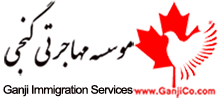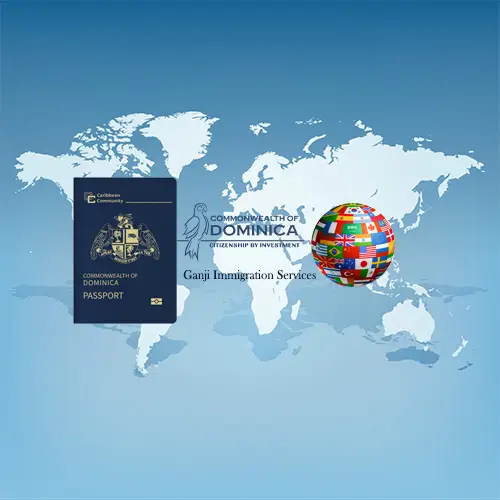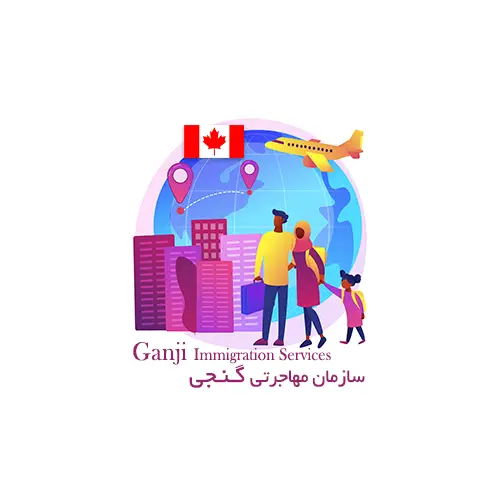
Are you dreaming of studying in the beautiful and welcoming country of Canada? A Canada study permit visa is your key to unlocking academic opportunities and cultural experiences that will shape your future. In this comprehensive guide, we'll delve into everything you need to know about the Canada study permit visa, from eligibility requirements to the application process.
Ganji, immigration services can tailor their assistance to your specific needs and circumstances.
Canada Study Permit Visa
A Canada study permit visa is a temporary immigration document that allows international students to pursue academic studies at designated learning institutions (DLIs) across Canada.It grants you the status of a student in Canada, enabling you to focus on your education while exploring all that the country has to offer.
Eligibility Requirements
To be eligible for a Canada study permit visa, you must meet the following criteria:- Letter of Acceptance: You need a letter of acceptance from a designated learning institution (DLI) in Canada. This confirms your enrollment in a valid study program.
- Financial Support: You must demonstrate that you have sufficient funds to cover your tuition fees, living expenses, and any other related costs. This can be through proof of savings, scholarships, or a loan.
- Study Program: Your study program must be at least six months long. Shorter programs may not require a study permit.
- Medical Exam: In some cases, you may be required to undergo a medical examination to ensure your good health.
- Language Proficiency: Depending on your chosen study program, you may need to demonstrate proficiency in English or French.

For most study permit applications, you will need to provide a Provincial Attestation Letter (PAL) from the province or territory where your designated learning institution is located. This letter confirms that your study program is eligible for a study permit.
Application Process
The application process for a Canada study permit visa typically involves the following steps:
- Gather Required Documents: Collect all the necessary documents, including your letter of acceptance, proof of funds, medical exam results (if applicable), language proficiency test scores, and your passport.
- Submit Application: You can apply online through the Student Direct Stream (SDS) or submit a paper application. The application process varies depending on your country of residence and the chosen application method.
- Biometrics: You may be required to provide your biometrics (fingerprints and photograph) at a designated visa application center.
- Medical Exam (if applicable): If required, undergo the medical examination.
- Decision: The processing time for study permit applications can vary. Once a decision is made, you will be notified.
- Travel to Canada: If your application is approved, you can travel to Canada and present your study permit to the border officer upon arrival.
Studying in Canada: A World-Class Experience
Canada is renowned for its high-quality education system, diverse culture, and friendly people. Studying in Canada offers numerous benefits, including:- World-Class Universities: Canada boasts several universities ranked among the best in the world, providing excellent academic programs and research opportunities.
- Affordable Education: Compared to many other countries, studying in Canada offers affordable tuition fees and living costs.
- Post-Study Work Permit: After completing your studies, you may be eligible for a post-study work permit, allowing you to gain valuable work experience in Canada.
- Immigration Opportunities: Canada's immigration policies favor international students, making it easier to apply for permanent residency after your studies. With the help of immigration services, Ganji, you can confidently pursue citizenship.
- Multiculturalism: Canada is a multicultural country with a diverse population, offering a rich and vibrant cultural experience.
Tips for a Successful Study Permit Application
To increase your chances of a successful study permit application, consider the following tips:
- Plan Ahead: Start your application process well in advance to allow ample time for document preparation and processing.
- Demonstrate Financial Support: Provide clear and convincing evidence of your financial ability to support your studies.
- Language Proficiency: If required, strive to achieve high scores on your language proficiency tests.
- Follow Instructions Carefully: Pay close attention to the specific requirements and instructions for your application.
- Seek Professional Help: If you're unsure about any aspect of the application process, consider seeking guidance from an immigration consultant or legal professional.
Choosing a program and school in Canada
Choosing the right program and school in Canada is a crucial decision that can significantly impact your academic and professional future.
Here's a comprehensive guide to help you make informed choices:
1. Identify Your Interests and Career Goals:
- Self-reflection: Understand your passions, strengths, and weaknesses.
- Research: Explore various fields and industries to find a suitable match.
- Career counseling: Seek guidance from professionals to clarify your path.
- Canadian Universities and Colleges: Explore accredited institutions across Canada.
- Program directories: Use online resources to find programs that align with your interests.
- University websites: Visit individual university websites for detailed information.
- Accreditation: Ensure the program is accredited by recognized bodies.
- Rankings: Refer to reputable university rankings for insights into program quality.
- Curriculum: Analyze the course structure and content to ensure it meets your needs.
- Specializations: Consider programs offering specialized tracks or concentrations.
- Faculty expertise: Research the qualifications and experience of faculty members.
- Campus culture: Explore the school's social and cultural atmosphere.
- Student support services: Evaluate the availability of resources like counseling, tutoring, and career services.
- Location: Consider the city or province where the school is located.
- Tuition fees: Compare tuition costs across different institutions.
- Living expenses: Estimate housing, food, and transportation costs.
- Financial aid: Explore scholarships, bursaries, and student loans available.
- Post-graduation work permit: Research the eligibility criteria and duration of post-graduation work permits.
- Job market: Assess the job market in the chosen field and location.
- Campus tours: If possible, visit the campus and interact with students.
- Online forums: Participate in online forums or social media groups for firsthand experiences.
- Increase your chances: Applying to multiple schools improves your odds of acceptance.
- Strategic approach: Tailor your applications to highlight your strengths and fit with each school.
- Deadlines: Meet application deadlines strictly.
- Documentation: Prepare all required documents, including transcripts, test scores, and essays.
- Interviews: Practice for potential interviews to showcase your skills and enthusiasm.
Studying in French in Canada: A Unique and Rewarding Experience
Canada, a bilingual country with both English and French as official languages, offers a unique opportunity for international students to immerse themselves in French language and culture. Studying in French in Canada can enhance your language skills, broaden your horizons, and open up a world of career possibilities.Why Study in French in Canada
- Immersive Learning Environment: By studying in a predominantly French-speaking environment, you'll have ample opportunities to practice and improve your French language skills.
- Cultural Exchange: Experiencing French Canadian culture firsthand will enrich your understanding of Canadian society and global perspectives.
- Career Opportunities: Proficiency in French can be a valuable asset in various fields, including international business, diplomacy, translation, and teaching.
- Quality Education: Canada is renowned for its high-quality education system, and French-language universities offer world-class programs in a variety of disciplines.
When selecting a French-language program and school in Canada, consider the following factors:
- Program Focus: Determine your academic interests and choose a program that aligns with your goals.
- School Reputation: Research the reputation of the school and its French-language programs.
- Location: Decide whether you prefer a large city or a smaller town for your studies.
- Cost: Compare tuition fees and living expenses across different regions.
Popular French-Language Universities in Canada
- Université de Montréal: One of the largest French-language universities in North America, offering a wide range of programs.
- Université Laval: Located in Quebec City, this university is known for its strong research focus and beautiful campus.
- Université du Québec à Montréal (UQAM): A modern university with a diverse student body and a focus on urban studies.
- Université d'Ottawa: A bilingual university with a strong French-language program, especially in the fields of law and international studies.
Visa Requirements and Application Process
To study in French in Canada, you'll need to obtain a study permit. The application process involves providing documents such as a letter of acceptance from a designated learning institution, proof of funds, and language proficiency test results. Ganji immigration services can assist you in securing the visa you need.Conclusion
A Canada study permit visa can open doors to a world of educational and cultural opportunities. By understanding the eligibility requirements, application process, and benefits of studying in Canada, you can embark on a transformative journey that will enrich your life and set you up for future success.
For all your visa needs, Ganji immigration services offers comprehensive support.
تعداد پرسش ها: 0










